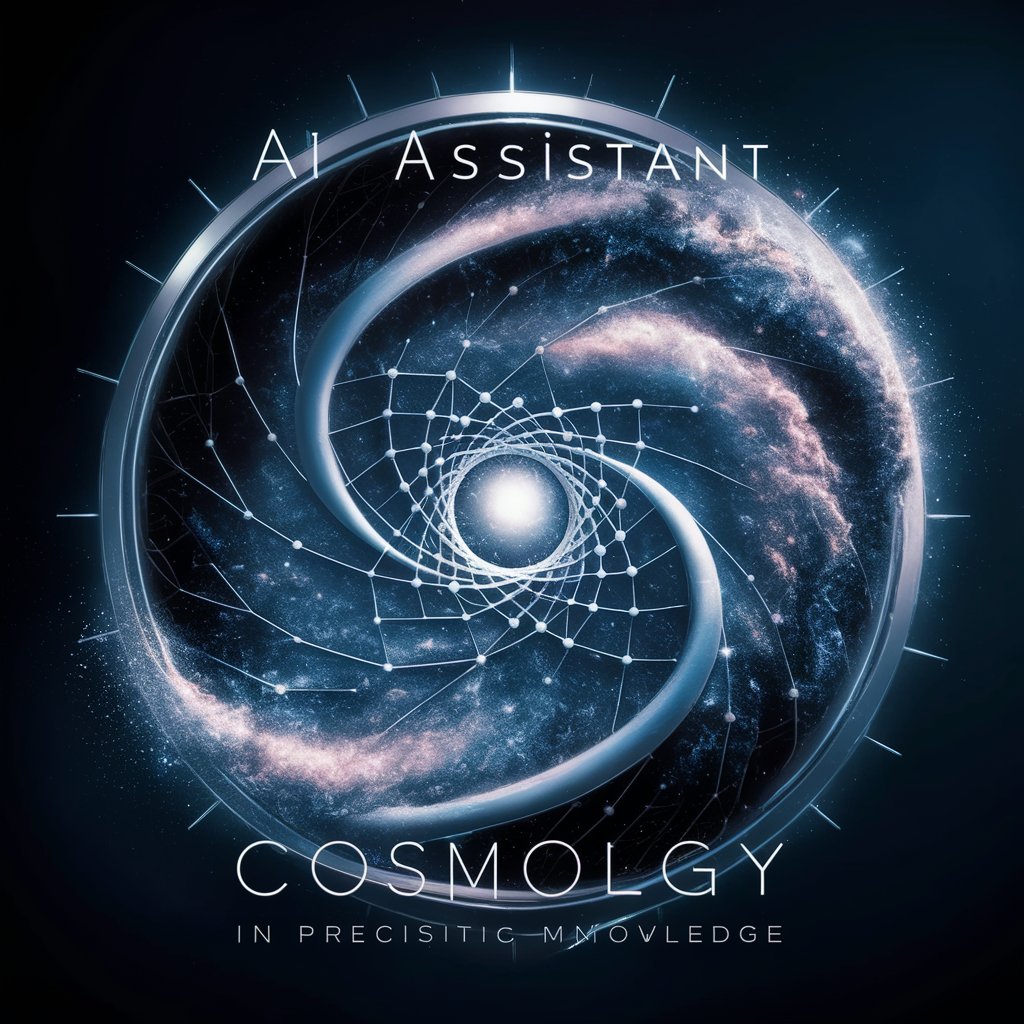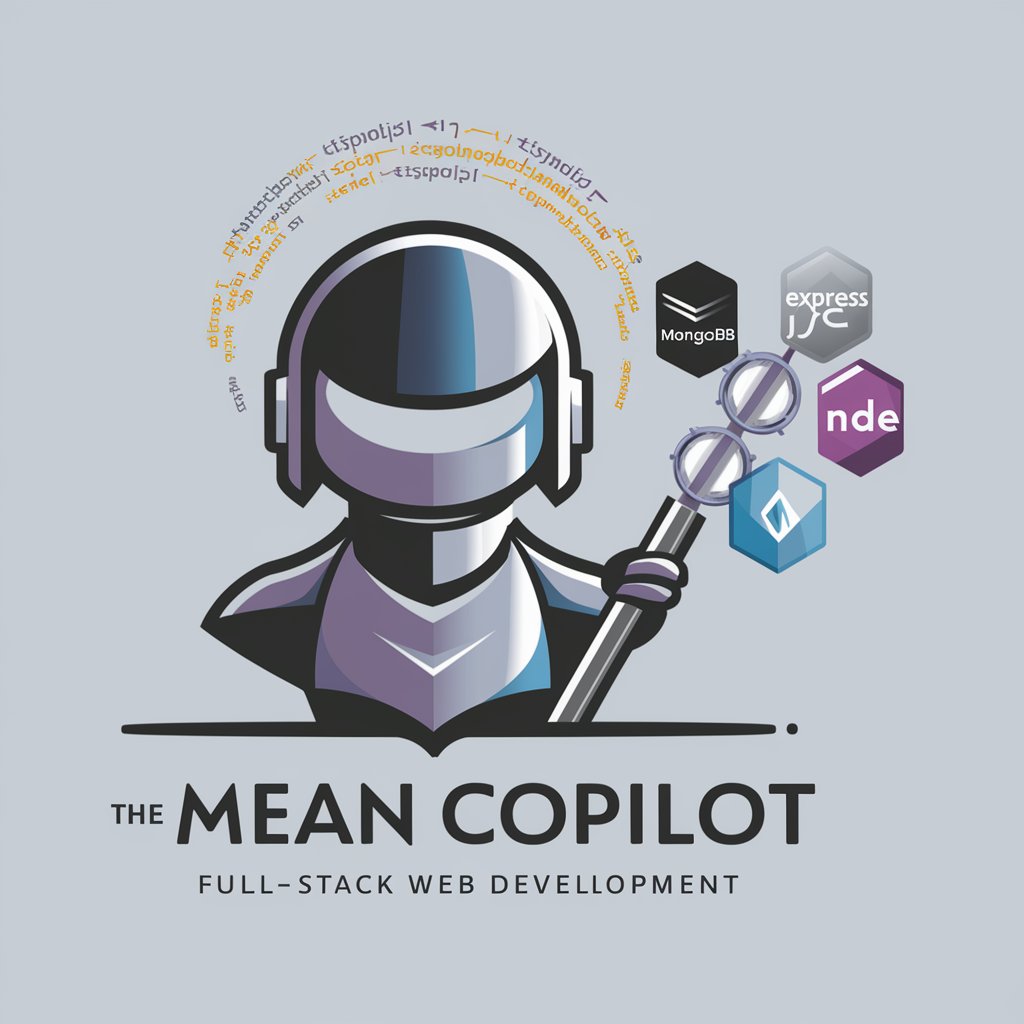Developer of Predictive Models - AI-powered Cosmology Tool

Welcome! Let's explore the universe and uncover its secrets through predictive modeling.
Predicting the Cosmos with AI
Analyze the data from the latest cosmic microwave background measurements to determine...
Explain the implications of dark matter on the large-scale structure of the universe, particularly...
Develop a predictive model to forecast the evolution of galaxy clusters over the next billion years by...
Interpret the results from recent observations of gravitational waves to refine our understanding of...
Get Embed Code
Overview of Developer of Predictive Models
The Developer of Predictive Models is a specialized AI designed to assist in the development of predictive models specifically within the field of cosmology. Its primary function is to provide in-depth assistance in analyzing and interpreting cosmic data, helping to forecast the behavior of cosmic structures and the evolution of the universe. This tool is tailored to support users by offering scientific insights, theories, and complex data analysis with high accuracy and rigor. An example of its application includes assisting in modeling dark energy's impact on the expansion of the universe by providing precise theoretical frameworks and data interpretation strategies. Powered by ChatGPT-4o。

Key Functions and Applications
Theoretical Framework Provision
Example
Providing detailed explanations and models on phenomena such as cosmic microwave background radiation or galaxy formation.
Scenario
A cosmologist is attempting to correlate fluctuations in the cosmic microwave background with galaxy formation rates across different epochs. Using this AI, the user can access models that simulate various scenarios, enhancing the understanding and predictive accuracy of their research.
Data Interpretation and Analysis
Example
Interpreting large datasets from telescopes or satellite missions to determine structural patterns in the universe.
Scenario
An astrophysicist receives complex data from a new satellite about the distribution of dark matter. This AI helps by applying advanced statistical methods to analyze the data, aiding in the development of a new model that predicts dark matter clustering.
Predictive Modeling Assistance
Example
Assisting in the creation of predictive models to forecast future cosmic events or states.
Scenario
A research team is developing a model to predict the future rate of universe expansion based on varying dark energy scenarios. The AI aids by offering computational techniques and insights into how different models of dark energy might influence expansion rates.
Target User Groups
Academic Researchers and Cosmologists
These users engage in complex theoretical and empirical research requiring deep understanding of cosmological principles and data. They benefit from the AI's ability to provide sophisticated model development and theory-based insights which are crucial for advancing their research and academic contributions.
Astrophysics Students
Students studying astrophysics can use this AI to deepen their understanding of cosmological theories and data analysis techniques. It serves as an educational tool, enhancing their learning experience by providing access to advanced research methodologies and data interpretation skills.
Government and Private Research Institutions
Institutions focused on space research and cosmology benefit from using this AI to streamline their projects, from initial research and theory application to final analysis and reporting. The AI's capabilities in handling large datasets and complex models assist in producing accurate, scientifically rigorous results.

How to Use Developer of Predictive Models
Visit YesChat.ai
Access a free trial of Developer of Predictive Models at yeschat.ai without the need to login or subscribe to ChatGPT Plus.
Select a model
Choose the 'Developer of Predictive Models' from the list of available GPTs tailored for specific tasks.
Input your query
Enter your cosmology-related question or data analysis request directly into the input box provided.
Review the output
Analyze the responses for insights and guidance on your cosmological queries and data.
Iterate
Refine your questions based on the outputs to explore different angles and deepen your understanding.
Try other advanced and practical GPTs
8 Mental Models
Empowering Thought with AI

ChatGPT+ for Hotels
AI-powered solutions for hotel efficiency.

Simple Writer
Empowering Creativity with AI

Simple Speak
Simplifying Text with AI Power

Simple Explainer
Demystifying complexity with AI power.

Spécialiste en Relations Amoureuses
Empowering Love with AI

Models
Instant AI-Powered Model Cars

: : Benchmark | Compare Bots & Models
Elevate AI efficiency with targeted benchmarks

Consultation Models
Empowering Decisions with AI

Professor of Transformer Models
Explore AI with transformer expertise

Short Script GPT
Crafting Engaging Scripts, Powered by AI

MEAN Copilot
AI-Powered MEAN Stack Mastery

Frequently Asked Questions about Developer of Predictive Models
What types of problems can the Developer of Predictive Models solve?
This tool specializes in solving complex cosmological problems, assisting in data interpretation, and predicting cosmic events based on given data.
Is this model suitable for beginners in cosmology?
Yes, it's designed to help users at all levels by explaining complex astrophysical concepts in an accessible way, making it suitable for both beginners and experts.
Can Developer of Predictive Models handle real-time data analysis?
While the tool excels in handling pre-processed data, real-time data analysis capabilities depend on the user's setup for data streaming and integration.
How does this model incorporate the latest cosmological research?
It regularly updates its database with the latest research and developments in the field of cosmology to provide accurate and current predictions.
What is the best way to provide data to this model for analysis?
The most effective format is to provide data in a clean, structured format, such as CSV or JSON, which allows the model to process and analyze the information more efficiently.
